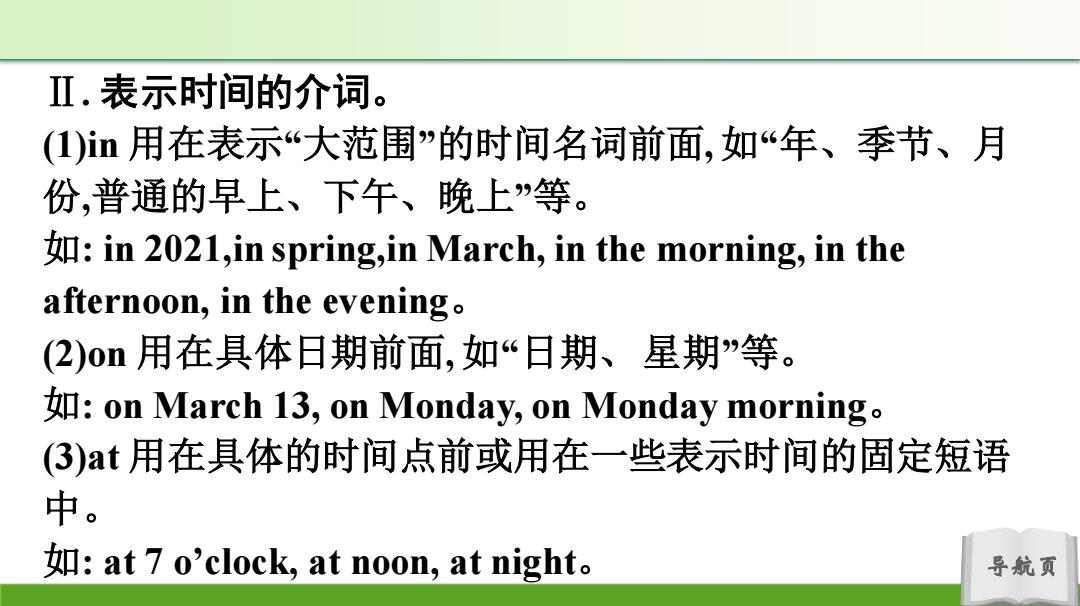
(2)回答“几点钟做某事”这类问题,常用介词a加时间点。如: I usually get up at six thirty. 我通常六点半起床。 He usually gets dressed at seven. 他通常七点穿衣服。 导航页
导航页 (2)回答“几点钟做某事”这类问题,常用介词at加时间点。如: I usually get up at six thirty. 我通常六点半起床。 He usually gets dressed at seven. 他通常七点穿衣服

Ⅱ.表示时间的介词。 (1)i用在表示“大范围”的时间名词前面,如“年、季节、月 份,普通的早上、下午、晚上”等。 in 2021,in spring,in March,in the morning,in the afternoon,in the evening. (2)on用在具体日期前面,如“日期、星期”等。 如:on March13,on Monday,.on Monday morning。 (3)at用在具体的时间点前或用在一些表示时间的固定短语 中。 如:at7o'clock,at noon,at night。 导航页
导航页 Ⅱ. 表示时间的介词。 (1)in 用在表示“大范围”的时间名词前面, 如“年、季节、月 份,普通的早上、下午、晚上”等。 如: in 2021,in spring,in March, in the morning, in the afternoon, in the evening。 (2)on 用在具体日期前面, 如“日期、星期”等。 如: on March 13, on Monday, on Monday morning。 (3)at 用在具体的时间点前或用在一些表示时间的固定短语 中。 如: at 7 o’clock, at noon, at night